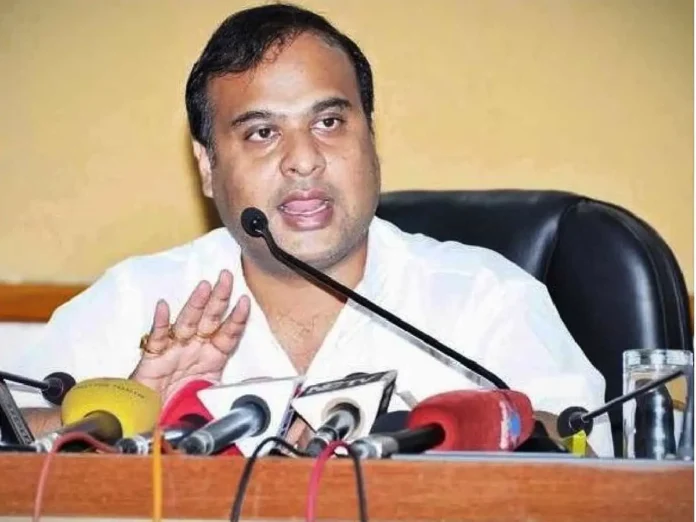Assam Chief Minister and BJP’s Jharkhand in-charge, Himanta Biswa Sarma, has expressed fierce condemnation of the Jharkhand government’s handling of the recent Yuva Aakrosh Rally. The rally, a massive demonstration of youthful frustration, saw thousands of young people marching through the streets of Ranchi and other cities, demanding job opportunities and a fair chance to secure their future.
The youth’s outcry was a powerful display of their growing discontent over unemployment and lack of prospects. They gathered in huge numbers, making their voices heard and their frustrations visible. Their demands were straightforward: they wanted better job prospects, transparency in recruitment processes, and a more responsive government.
Instead of engaging with these concerns constructively, the Jharkhand government opted for a crackdown. Reports indicate that the police responded with excessive force, using tear gas, water cannons, and even physical confrontations to disperse the crowds. The scenes of young people being pushed back, some even being injured, have sparked outrage and concern across the nation.
Himanta Biswa Sarma’s criticism of the Jharkhand government’s actions came swiftly. Sarma, known for his outspoken nature, condemned the use of force against peaceful protesters. He labeled the government’s approach as heavy-handed and unjustifiable. Sarma argued that such responses only exacerbate the problem and create further distance between the government and the youth it is meant to serve.
Sarma’s comments highlighted a broader issue: the disconnect between elected officials and the everyday concerns of their constituents. By focusing on suppressing dissent rather than addressing the underlying issues, the Jharkhand government missed a crucial opportunity to engage with its youth in a meaningful way. Sarma emphasized that the government should have taken this rally as a chance to listen, understand, and act on the concerns raised by the young people.
The rally was not just a spontaneous outburst but a result of long-standing frustrations. Young people across Jharkhand have faced increasing unemployment rates and a lack of clear pathways to secure employment. The government’s response, rather than acknowledging these valid concerns, only served to alienate the very demographic that holds the key to the state’s future.
Sarma’s remarks also reflect a growing sentiment among many that political leaders should engage with protesters respectfully rather than resort to force. His criticism suggests a call for a more empathetic and proactive approach from governments when dealing with public demonstrations. By addressing the root causes of the discontent, rather than merely trying to suppress it, governments could potentially turn a crisis into an opportunity for positive change.
The backlash against the Jharkhand government has not only brought national attention to the issue but also highlighted the broader challenges of youth unemployment in India. The Yuva Aakrosh Rally has become a symbol of the struggle faced by millions of young people seeking a foothold in an increasingly competitive job market. Sarma’s condemnation underscores the urgency for meaningful reform and better engagement from those in power.
As the situation continues to develop, the focus remains on how the Jharkhand government will address the concerns of the young people who took to the streets. Will they continue to resist calls for reform, or will they seek to make changes that address the core issues raised by the protesters? The answer to this question will not only determine the future of Jharkhand’s youth but also reflect the government’s willingness to adapt and respond to its citizens’ needs.
In the meantime, Sarma’s comments serve as a reminder of the importance of listening to and addressing public grievances with empathy and understanding. The confrontation between the Jharkhand government and the young protesters has cast a spotlight on the broader need for political leaders to engage with their constituents in a more respectful and constructive manner.




